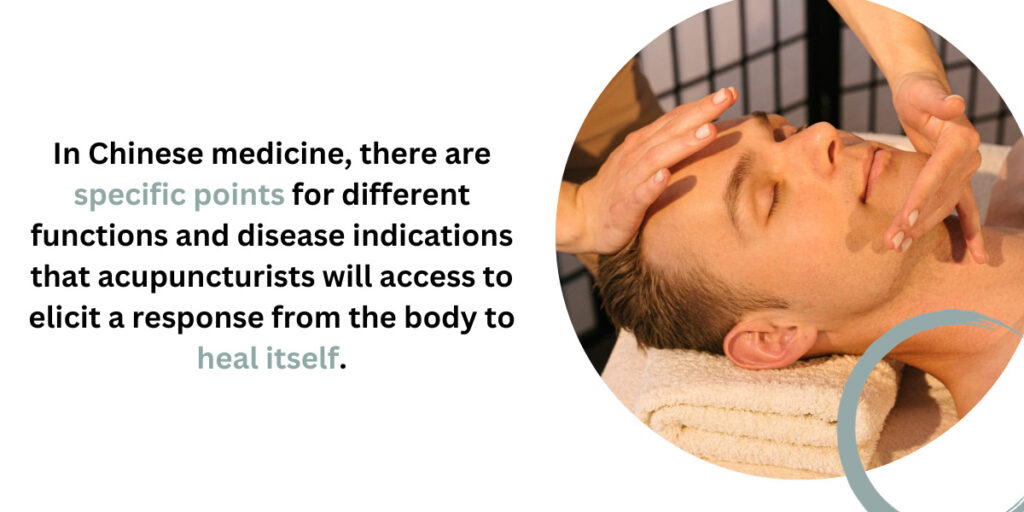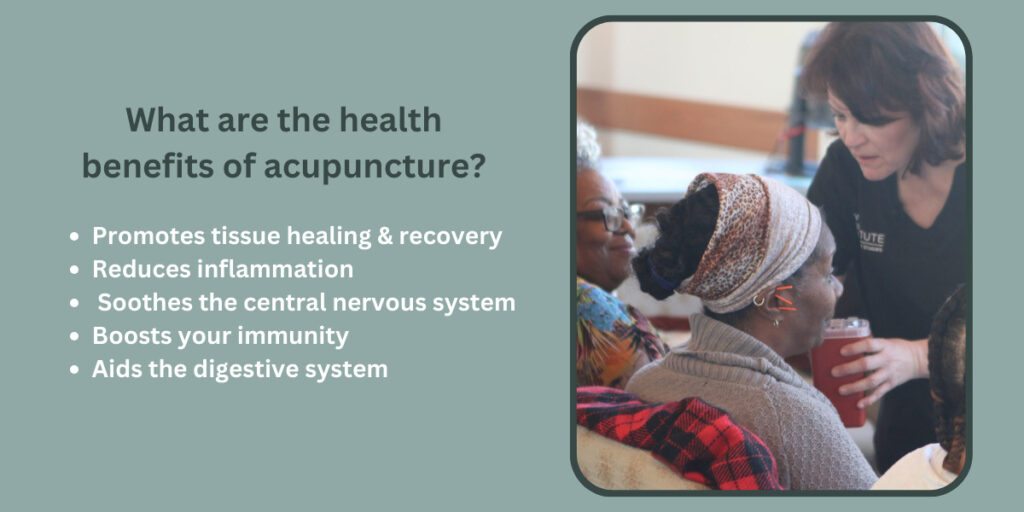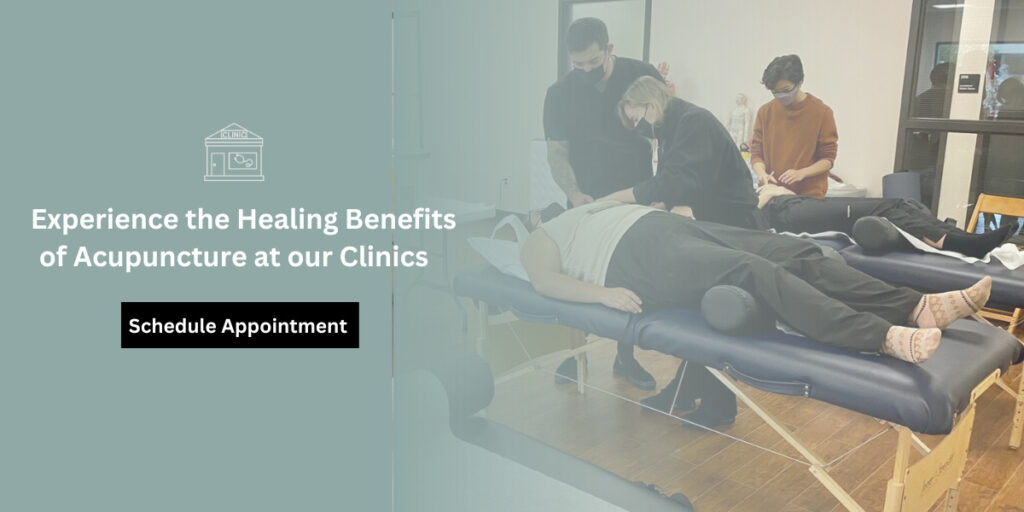In this Article:
- How does acupuncture work to relieve pain?
- What are the health benefits of acupuncture?
- Is acupuncture safe?
- Contact Won Institute
The ancient practice of acupuncture, which originated from the Far East thousands of years ago is a complete medical regiment that focuses on correcting imbalances of energy in the body and has many associated benefits. In Chinese medicine theory, the benefits of acupuncture are linked to its ability to balance the flow of energy or “qi” also known as an individual’s vital life force throughout the body. By inserting tiny needles in specific pressure points of the body, it is said to bring the energy flow back into proper balance, thus relieving pain and promoting a sense of well-being.
Acupuncture is becoming widely used and often requested more as a form of treatment for pain in the fast-growing field of complementary and alternative medicine (CAM).
The use of acupuncture for pain control in the United States goes back several decades ago. Acupuncture was first introduced in the U.S. following President Nixon’s visit to China where he toured several hospitals using this ancient technique to treat medical conditions. In 1973, acupuncture was approved by the U.S. Internal Revenue Service as deductible medical expense.
More recently, a National Health Interview Survey (NHIS) that looked at a five-year period (2002 – 2007), revealed that acupuncture is on the rise. Published in the journal, Evidence-Based Complementary and Alternative Medicine, the collected data from the survey found that 6% of Americans are using or have used acupuncture as part of their healthcare – over 14 million users, up from 8 million in 2002. The study revealed that the growth is remarkable considering that less than one percent of the population reported trying acupuncture in the last two decades.
The future of acupuncture is promising as conventional medicine acknowledges it as an important treatment. The World Health Organization (WHO) already supports the use of acupuncture for dozens of conditions and released a report in 2003 titled Acupuncture: Review and Analysis of Reports on Controlled Clinical Trials. Among the many conditions the WHO recognizes that acupuncture can treat include: rheumatoid arthritis; facial pain; gout, traumatic or post-operative pain; dental pain; labor pain during childbirth; dysentery; headaches and migraines; neurological disorders (early treatment of paresis after stroke has proved to be effective); respiratory disorders like allergic rhinitis; common symptoms of digestive disorders like nausea and vomiting, and other disorders, such as irritable colon syndrome and chronic ulcerative colitis; chronic prostatitis; premenstrual syndrome and painful menstrual cycles; cardiovascular problems like hypertension and hypotension; psychiatric disorders like depression; and relief for cancer pain, including the adverse reactions from radiotherapy and chemotherapy.
How does acupuncture work to relieve pain?
The WHO Scientific Group met in 1989 to adopt a proposed standard acupuncture nomenclature for international use, and determined there was 361 points on the body.
Acupuncturists have identified multiple locations on the body over time, however, many will still look to the traditional identified points. The acupuncture points are mapped to 14 main meridian channels. The two additional channels relate to “extraordinary vessels” – the interior of the spine (governing vessel) and another along the midline of the abdomen (conception vessel).
Each of the 14 meridian channels has a specific number of points and correlate with solid and hollow organs.
In Chinese medicine, there are specific points for different functions and disease indications that acupuncturists will access to elicit a response from the body to heal itself.
What are the health benefits of acupuncture?
The list is endless. Here are some of the top reasons acupuncture can help improve your health:
Benefits of acupuncture for surgery recovery & inflammation
Acupuncture helps with pain relief for both acute and chronic pain. An acupuncturist can really get local with needling to address pain, which can be more powerful and potent than medication – minus the side effects. It’s also great for patients’ pre and post-surgeries to help nourish and promote tissue healing.
“If you take an anti-inflammatory medication for pain, it can not only upset your stomach but it isn’t going directly to the source of the pain and attacking it.” The great thing about acupuncture is that you can get so local, and the area is being treated immediately so it’s more effective,” said Benjamin W. Griffith II, M.Ac., L.Ac, Dipl. Ac., Acupuncture Studies Department Chair at the Won Institute of Graduate Studies.
Acupuncture can change the perception of pain
Acupuncture changes the chemistry in the thalamus in the brain and can work at healing the body. A 2010 study published in Natural Neuroscience demonstrated that acupuncture stimulation can soothe pain by releasing a natural pain killing chemical called adenosine. This natural painkiller in the body usually surges when someone is injured, and this may be the explanation why someone feels pain relief during acupuncture treatment.
“With acupuncture, you are really helping with the chronic suffering of life. Acupuncture can soothe the central nervous system and you aren’t feeling the pain,” said Griffith. “I’ve treated so many people over the years in private practice who have gone on narcotic painkillers like Oxycodone and it isn’t really treating pain – it’s only helping them forget about it.”
Acupuncture treatments can help boost your immunity
Acupuncture can help with a weakened immune system. A poor immune system can result in chronic colds, infections, and allergies. Studies have shown that acupuncture can help increase the body’s T-cells. The extra level of T-cells can kill off harmful viruses and bacteria in the body. More research has revealed that acupuncture can regulate immunity, and enhance anti-cancer and anti-stress immune function, as well as exert anti-inflammation effects.
Acupuncture can reduce stress and calms the central nervous system
Acupuncture gives most people a sense of calmness and overall good feeling. It is said that this therapy can lower stress hormones and regulate mood to decrease anxiety.
Treatments can aid the digestive system
Acupuncture can nourish related organs and reduce inflammation. It can help with a variety of digestive disorders like heartburn, abdominal pain, irritable colon, diarrhea and constipation.
What are the benefits of using acupuncture for asthma?
Acupuncture promotes the circulation of all the substances in the body. In turn, the lungs function is optimized, thus relieving symptoms of upper respiratory diseases like asthma, bronchitis and pneumonia.
Acupuncture in an emergency care setting
Griffith said that acupuncture can be used as an effective treatment for someone who has suffered a stroke. There are scalp points that can stimulate and nourish the brain, as well as getting the circulation in the extremities moving to prevent paralysis in the face. In Asia, there are hospitals that are dedicated to just stroke patients, according to Griffith.
Can acupuncture help with infertility?
For couples who are having a difficult time conceiving a baby, acupuncture can be helpful. Acupuncture harmonizes the uterus and the menstrual cycle. It can increase blood flow to the uterus, which thickens the endometrial lining and aids in implantation of the egg.
“Acupuncture can really relax involuntary muscles. That’s why it’s so great for pre-surgical procedures,” said Griffith. “When a woman is getting In Vitro Fertilization (IVF) treatments, it really relaxes the uterus so it doesn’t spasm. This can increase the success rate of the egg being implanted by 10 to 15 points.”
Prostate Health
Acupuncture gets the blood and lymphatic system moving, which helps with swelling that tend to cause chronic problems in men, such as an enlarged prostate or benign prostatic hyperplasia.
Is acupuncture safe?
There are no side effects to acupuncture as long as you’re with a certified practitioner using sterile needles. However, acupuncture is not for everyone. It’s advised that people with bleeding disorders, those who have pacemakers and some pregnant women should avoid acupuncture.
Contact Won Institute for our Professional Acupuncture Clinics
Now that you know the many powerful healing benefits of acupuncture and how it can help you improve your health and well-being, why not consider trying it out for yourself?
To learn more about acupuncture, visit our two clinics at the Won Institute: the student acupuncture clinic, which is staffed by acupuncture interns and supervised by licensed faculty members, and the professional clinic which is staffed by licensed acupuncturists.




Wow, I didn’t know that acupuncture can help increase T-cells in the body to improve your immune system. With the cold winter months fast approaching, I think this might be something to consider to help give my body a boost so I am not laid up all winter with various illnesses. I should look for a reputable acupuncturist in my area that can provide these services.